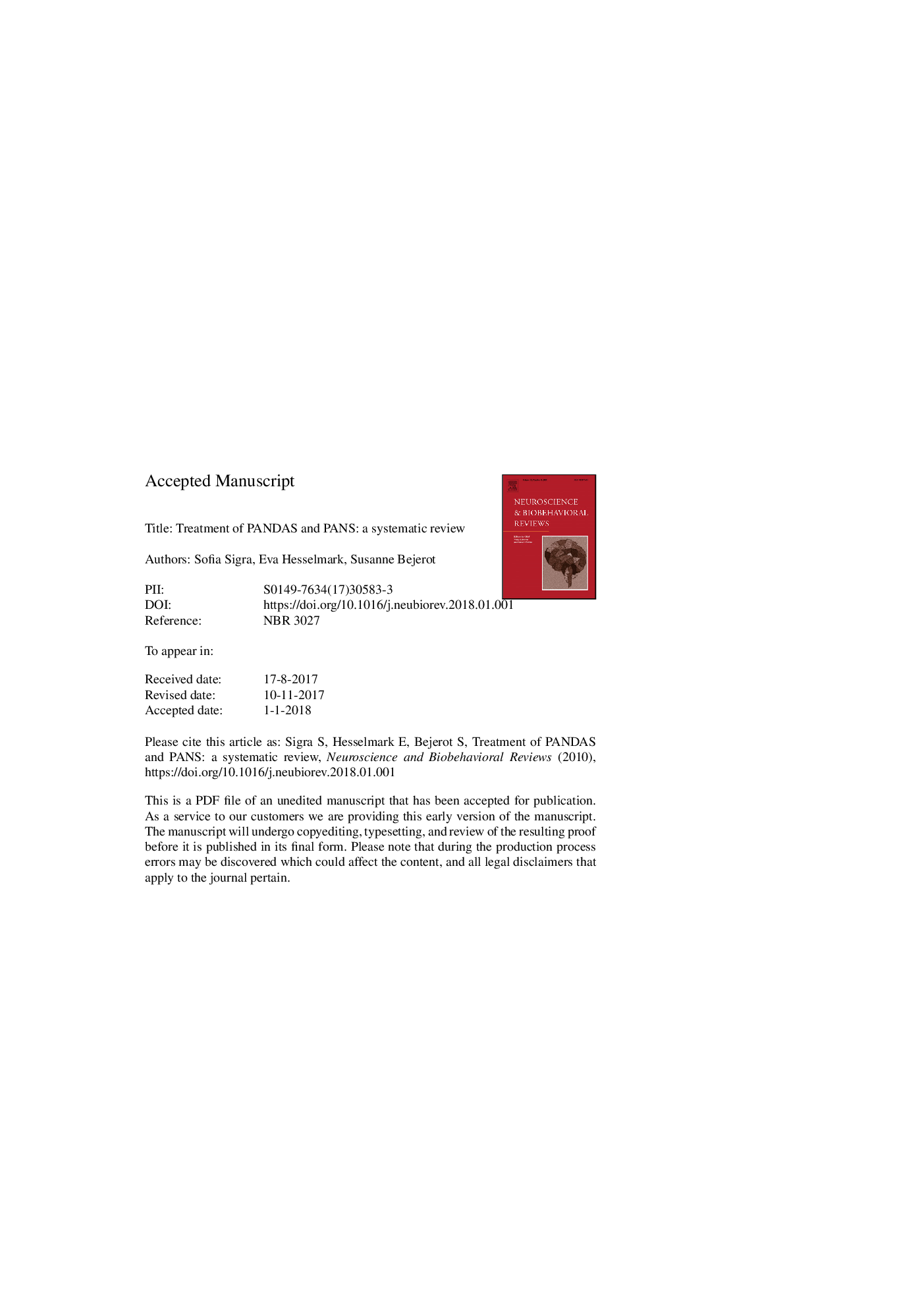| Article ID | Journal | Published Year | Pages | File Type |
|---|---|---|---|---|
| 7302016 | Neuroscience & Biobehavioral Reviews | 2018 | 38 Pages |
Abstract
Pediatric autoimmune neuropsychiatric disorders associated with streptococcal infections (PANDAS) are a subtype of acute-onset obsessive-compulsive disorder (OCD) thought to be caused by an autoimmune response to group A streptococcal infection. Based on this proposed pathophysiology, alternative treatments for acute-onset OCD have been introduced, including antibiotics and immunomodulatory interventions. However, the literature on treatment of PANDAS is diverse, and clinical consensus regarding optimal treatment strategy is lacking. We conducted a systematic review of articles in PubMed, Cochrane Library, and Scopus that addressed treatment for PANDAS and related disorders. Twelve research studies involving the following treatments met inclusion criteria: penicillin, azithromycin, intravenous immunoglobulin, plasma exchange, tonsillectomy, cognitive behavior therapy, NSAID and corticosteroids. In addition, 65 case reports in which patients received immunomodulatory treatments, antibiotics, and/or psychotropics were identified. We determined that rigorously conducted research regarding treatments for PANDAS is scarce, and published studies have a high risk of bias. Further research is needed in which promising treatment strategies for PANDAS and other variants of OCD with proposed autoimmune etiology are rigorously investigated.
Keywords
Related Topics
Life Sciences
Neuroscience
Behavioral Neuroscience
Authors
Sofia Sigra, Eva Hesselmark, Susanne Bejerot,
